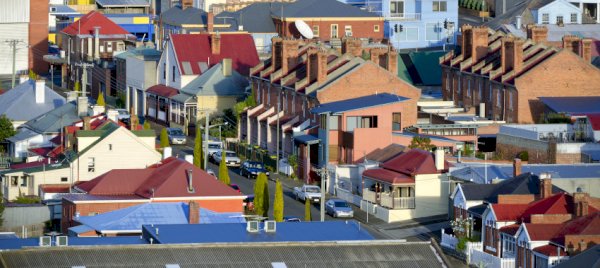
The RBA governor has doubled down on his support to remove stamp duty following budget announcements by NSW and Victoria relating to the tax.
Appearing before the House of Representatives standing committee on economics yesterday (2 December), the governor of the Reserve Bank of Australia (RBA), Dr Philip Lowe, backed a switch from stamp duty to a more generalised tax.
His comments have followed announcements by the NSW and Victorian governments about stamp duty reform in their respective 2020-21 budgets.
Mr Lowe echoed comments he previously made when he appeared before the standing committee in the past, when he had stated that he would support the scrapping of stamp duty as part of a broader tax reform agenda to support the economic recovery effort.
Making comments on the issue yesterday, Mr Lowe said: “I generally don’t like commenting on taxation policy – that’s not my area of expertise. But I will make an exception on this one. I feel like I have to because I’ve spoken on many other occasions about the benefits of a switch from stamp duty to some sort of generalised tax.”
Mr Lowe repeated his view on the nature of stamp duty, stating that it is a “tax on mobility”.
“Every time you switch housing, you pay a tax. If you stay in your place, you don’t pay a tax. So, it’s a tax on mobility,” he explained.
“In a country that’s inherently mobile, we want people to be flexible, to be able to move around in response to jobs and opportunities and family reasons. We don’t want to put taxes on mobility.
For these reasons, Mr Lowe said the proposed stamp duty and land tax reforms by NSW and Victoria is “the right thing to do.”
The NSW government recently launched a public consultation on enabling home buyers to opt out of stamp duty and instead choose a smaller annual property tax.
In its 2020-21 budget, the state government said the proposed model for the tax reform aimed to reduce the upfront costs for buyers and remove “one of the biggest financial barriers to home ownership”.
The government outlined a proposed model that would enable people who opt in to the system to also eliminate any land tax liability.
NSW Treasurer Dominic Perrottet said the current stamp duty system was in need of reform to present NSW residents with a modern tax system.
The Victorian government also announced proposals to change the stamp duty structure in its 2020-21 budget, including an investment of over $293 million to fund a stamp duty concession of up to 50 per cent for homes valued at up to $1 million for residential property contracts entered into from 25 November 2020 to 30 June 2021.
Relief will be targeted at newly built “off-the-plan” homes, which will receive a 50 per cent waiver, while existing homes would be eligible for a 25 per cent waiver.
However, the Queensland state government has been criticised for failing to follow suit, with major brokerage Loan Market Group expressing disappointment that Queensland is the only eastern state that has not used stamp duty as an economic lever.
According to Loan Market, Queensland reforming stamp duty to increase the affordability of property would have accelerated the state’s economic recovery, particularly given that the state is leading the nation for population growth during the coronavirus pandemic.
Queensland attracted the largest net interstate migration (6,800 new residents) of any state in the June quarter, according to the Australian Bureau of Statistics.
The major brokerage said that stamp duty adds $8,750 to the price of a $500,000 home, and $19,600 to a $750,000 property in the state.
Commenting on the lack of stamp duty reform in Queensland, Loan Market state manager Andrew Thompson said: “It’s unfortunate that Queensland home buyers won’t receive the same property incentives that have been outlined for their southern peers.”
“The fundamentals are strong for the real estate sector to further contribute to Queensland’s economic recovery. Stamp duty reforms would have made it easier for buyers to get into the market or upgrade and generate more activity for everyone from tradesmen to conveyancers.”
Mr Thompson observed that refinancing increased in the state in the middle of 2020, while the second half of the year has been driven by finance for new purchases and investments.
Brisbane’s housing market recorded a 3.5 per cent growth over the last year, he added.
According to Loan Market, its Queensland mortgage brokers settled almost 2,000 loans in the last 90 days, which is a 9.1 per cent increase compared with the same period in 2019.
[Related: Aussie CEO welcomes Vic stamp duty move]
